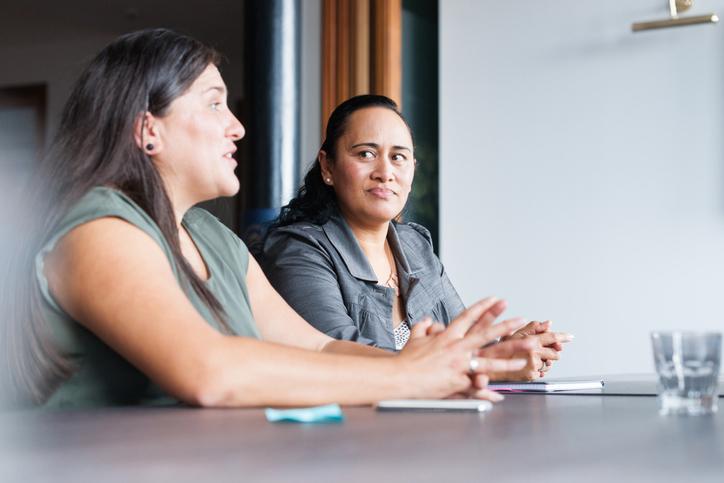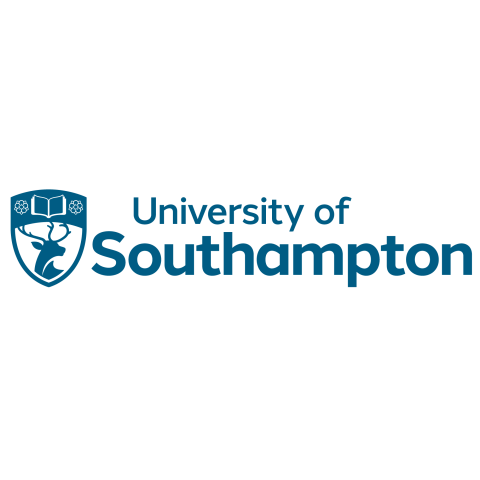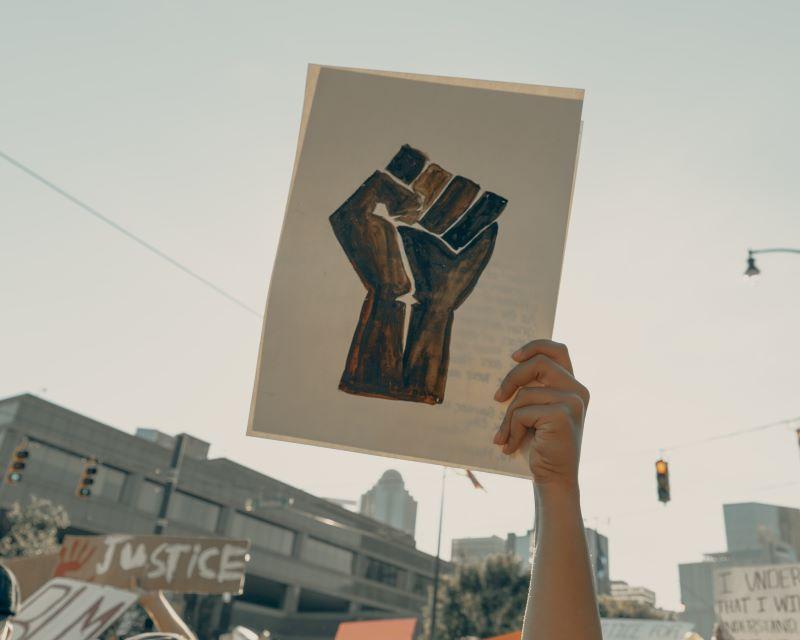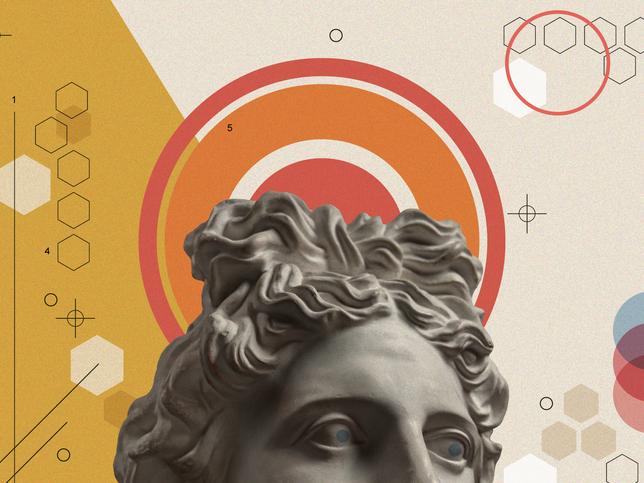
Decolonising interview methods: a call to look to the moon
The interview process often rests on colonial perceptions of what counts as knowledge, how knowledge is generated and who ‘owns’ it. But researchers can use orienting questions to reflect upon and decentre this approach
In Aotearoa, there is a resurgence of maramataka [Māori environmental calendar] knowledge being honoured as a way of living. These practices are considered when we plan, gather, share and “interview”. A call to look to the moon is an acknowledgment of how far we have come and the more we need to do – decolonise.
Decolonisation concerns efforts to decentre and unlearn the economic, political, cultural and social processes and suppressions of colonialism, and the ongoing legacies of imperialism and empire. Colonialism remains a violent force in what we (the West) consider to be authoritative knowledge and methods of finding out about the world. Knowledge is never neutral. All knowledges and ways of learning about the world are grounded in people’s world views. But Western-generated world views are recognised and accorded more legitimacy and privilege than others. Indigenous ways of finding out about and accounting for the world are marginalised.
Decolonising research knowledge
Where interviewing as a research method takes place within Western-dominant methodological modes, it is part of a world view that asserts what counts as legitimate research and as knowledge, and positions this set of rules as universally applicable. The imperial cultural paradigms and power processes from which this abstracted universality springs are rendered invisible. So decolonising interview methods involves a broader challenging of dominant perceptions of how knowledge is generated, what counts as knowledge and who are considered knowers.
- Can we really decolonise the university?
- Decolonisation to Indigenisation: how can institutions centre Indigenous knowledge?
- How to decolonise initial teacher education: start with yourself
Indigenous and Africanising methodologies are a reclamation of the human and located. They are rooted in the world views of their societies and peoples. They acknowledge diverse intellectual sets of knowledges, with methodologies that are contextualised, and non-extractive ways of finding out about the world. These methodologies serve transformative research, with aims that include understanding the constellation of oppressions and injustices stemming from colonialism, identifying struggles and resistances to them, and addressing social and environmental processes, relations and transformations.
Orienting questions to reflect on: Who owns the research issues you have identified, and who initiated them? In whose interests is your research being carried out? Who is your research for? Who has control of the research? How are you negotiating power relations and decisions? What counts as knowledge in your research? Who is transformed by it? Whose is the authorial voice? What responsibility for reclaiming and transforming are you taking on?
Decolonising research ‘interviews’
Interviews conducted within Western modes of research, then, are a different endeavour from what seems to be the same process of data creation enacted within Indigenous and Africanised methodological approaches. The conventional interview method is founded in an asymmetrical interviewer-interviewee relationship. Standard academic disciplinary theories, terms and concepts are what count in shaping interview questions. The established rules and codes drawn from the Western archive of knowledge systems and values frame the very idea of interviews. They shape interview practices that are individualist, outside relationality and devoid of context. Further, from an Indigenous perspective, the terms “research” and “interview” can be loaded, associated with colonial appropriation and denigration.
In an Indigenous knowledges paradigm, what those of us schooled in dominant ideas think of as one-to-one and group interviews flows from a conversational method based on an oral storytelling tradition, with sharing stories as a deep means of knowledge-sharing between individuals and groups. Relationality, context and assisting, and being accountable to others are crucial to this. For example, Margaret Kovach, of Canadian First Nation ancestry, explains that interviewing in an Indigenous approach is integrally linked to an Indigenous world view. The core issue is the relationship between method and epistemology. Indigenous methods of whatever sort, then, cannot be lifted out of the soil in which they are rooted. As well as the link to particular, situated knowledges, Kovach puts forward six further characteristics of interviews within an Indigenous framework: relationality, purpose, protocols, informality and flexibility, collaboration and dialogue, and reflexivity.
Conventional preparation for interview research might include literature review, design of study, relevance to disciplinary theory, appropriate techniques for obtaining and analytically extracting knowledge, and so on. With Indigenous approaches, however, preparations might be relational, such as participating in ceremonies and clear planning for how the research and researcher will give back to the community.
Orienting questions: What do we learn about Western-dominant approaches to interviews through reflecting on a decolonising approach? What context/s are we taking into account? How are our interview practices constructing the relationship between knowledge and knowers? How much less do you understand you know than when you started asking questions?
Kaupapa Māori inter-views
Considering “interviewing” from a Kaupapa Māori research perspective, there is inspiritment within a Māori way of being in the world. This highlights attentiveness to shifts of power across a range of material, non-material, affectual, relational and decisional concerns in interview-type research. It means a deep respect for human and non-human relationships and connections, and being accountable. It invokes building and sustaining relationships and understanding interviews as inter-views, an interweaving of views and energy, and as exchanges of breath and movement, not just a gathering of words. It involves ethical consideration of safety and protection, aiming for a safe and comfortable experience for Indigenous participants to counter the worry, nerves and context of historical trauma and violence.
Accountability
One issue that non-Indigenous researchers can find both fundamental and challenging about Indigenous approaches such as Kaupapa Māori research is that of accountability.
Marginalised societies and peoples with relational world views can see knowledge about experiences and traditions as held by and having implications for the group and environment as a whole. Accountability and responsibility are held in common. A Māori researcher, for example, is accountable to their research subjects and landscape in a way that is very different from conventional Western notions. Helen Moewaka Barnes, for example, has explained that she carries her whakapapa, her wider family and connections, with her and that her actions are not just her own. She is held to account by her connections for all aspects of her research practice and outcomes. Academics entrenched in Western models of ethical practice do not carry that deep sense of accountability investment. If they act badly, then, more narrowly, their university and professional association will see that as a breach of academic and disciplinary regulations, and their individual professional reputation (rather than generational connections) will be damaged.
Orienting questions: How can we work against an interview approach that assumes appropriation and extraction of knowledge? How do we enact our interviews and research in a way that is accountable to Indigenous peoples and their struggles? How can we prevent detrimental implications for marginalised peoples?
For non-Indigenous researchers, then, it is possible to engage with decolonising interview methods with attention to who produces, owns, uses and benefits from their practice, through reflection on our location and the effects of how we see interview methods, and through allyship and Indigenous and non-Indigenous research partnerships.
Rosalind Edwards is a professor of sociology at the University of Southampton. Teah Carlson is a kairangahau/kaupapa Māori researcher and evaluator at the SHORE & Whāriki Research Centre at Massey University, New Zealand. Rachel Jane Liebert is a Pākehā (White settler) senior research fellow in the Institute for Connected Communities at the University of East London and a visiting scholar at the Whāriki Research Centre.
If you would like advice and insight from academics and university staff delivered direct to your inbox each week, sign up for the Campus newsletter.
Additional Links
For further reading, see Decolonizing Methodologies: Research and Indigenous Peoples by Linda Tuhiwai Smith (Bloomsbury, 2021) and Indigenous Research Methodologies by Bagele Chilisa (Sage, 2019).
See also the NCRM webinar series on decolonial research methods.
The Tipuna Project is a Māori and Pākehā (White settler) collaboration based in Aotearoa to innovate, evaluate and translate research practices with ancestors.
For more resources on this topic, see our spotlight on how universities can boost staff diversity.




